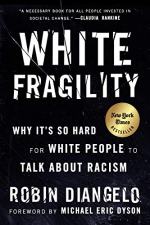|
This section contains 786 words (approx. 2 pages at 400 words per page) |

|
Summary
Whites are largely insulated and protected from race-based stress, but they become defensive when their ideas about individualism, meritocracy, and color blindness are challenged. Whites are part of a system, and the author notes the ways in which this system protects us and is perpetuated, including punishing open talk about race, dividing racism into a good/bad binary, internalized superiority, and anti-black sentiment, among other forces.
Whites have very little training or information about racism, and the courses they take generally use racially coded language such as "privileged" rather than naming the beneficiaries of racism directly to protect the programs and its facilitators. If programs address racism and white privilege directly, whites generally react with anger and withdrawal. Progressives may protest that they already know the material. The author uses the word "habitus," borrowed from the anthropologist Pierre Bourdieu, to explain the ways in...
(read more from the Chapter 7 Summary)
|
This section contains 786 words (approx. 2 pages at 400 words per page) |

|




